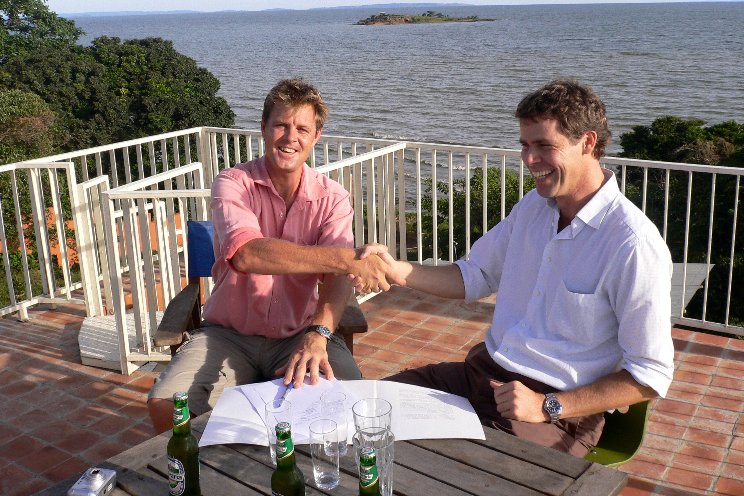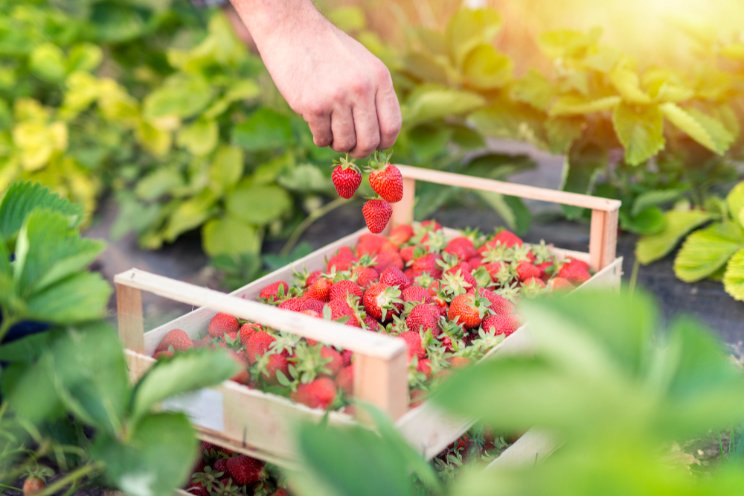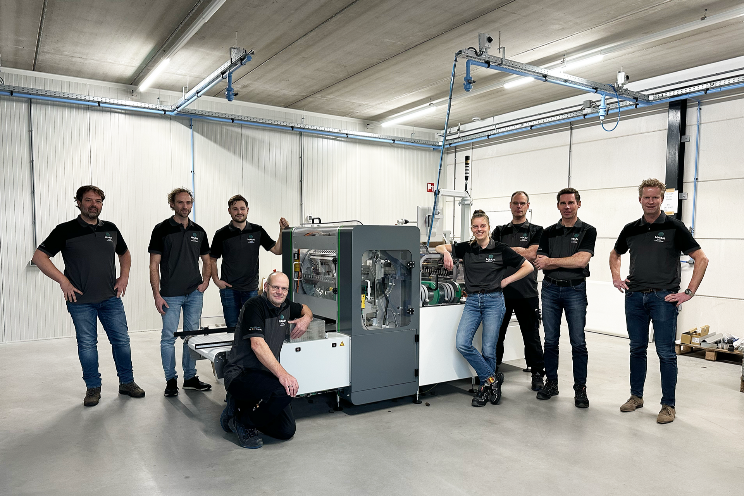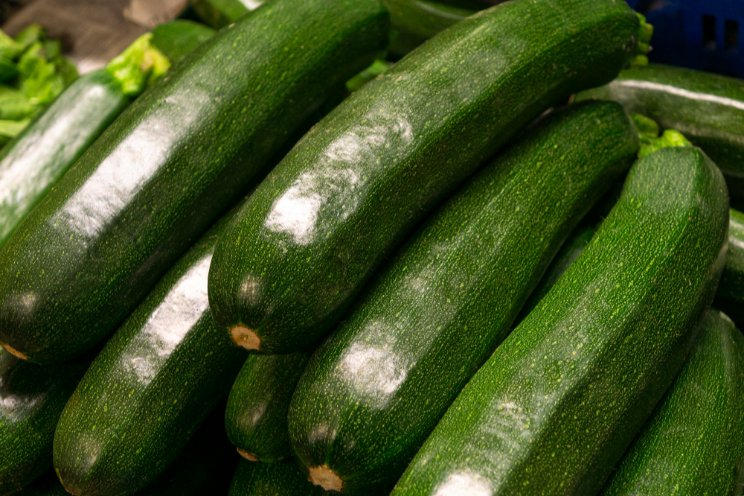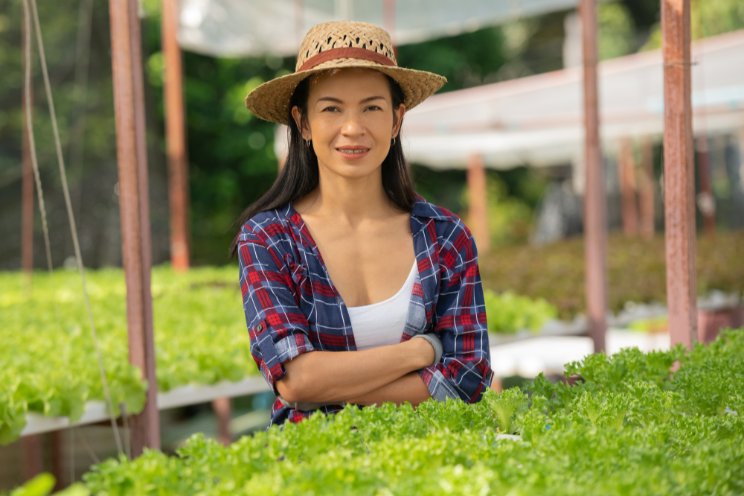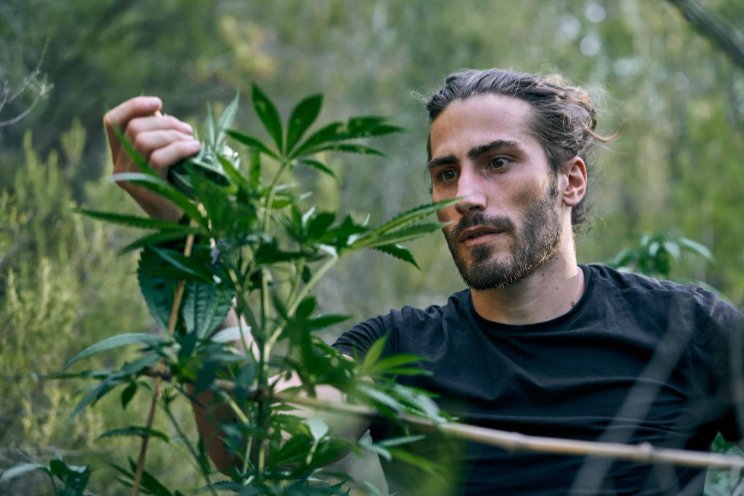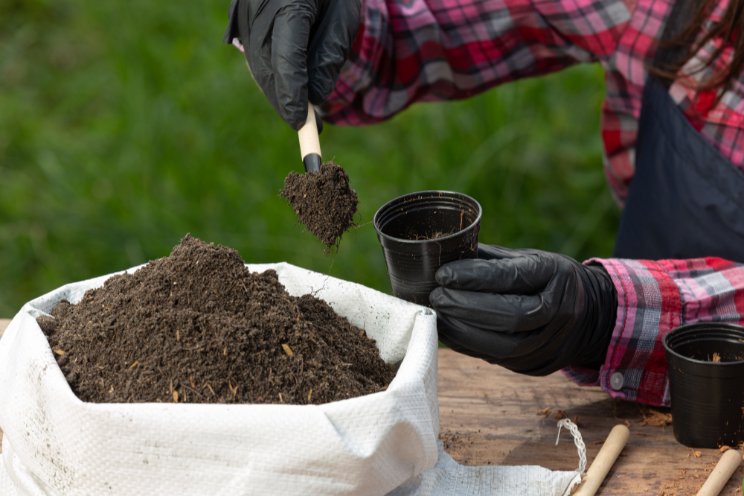Glass House Farms grows big!
Added on 12 February 2020


Glass House Farms' Owner Graham Farrar is a tech entrepreneur turned cannabis grower who is managing 500,000 square feet of cannabis under glass.
"I think we are making society a better place," Farrar says. "Our workers are able to take care of their families better. We are moving stigmas and helping with the drug war. Cannabis has so many positive aspects. I realize that viewpoint isn't shared universally, yet. There's a great quote I like that applies, 'The future is here; it just isn't equally distributed.'"

Glass House Farms uses cutting-edge equipment and systems to consistently turn out a premium product. Owner Graham Farrar says the consistency helps ensure the customers have the same experience every time with the products they use.
Cannabis Calls to a Techie
Farrar describes himself as a dyed-in-the-wool tech entrepreneur, and it has served him well. In middle school, he worked as a self-employed tech worker repairing computers in his local community. From those humble beginnings, he would move on to work at Software.com, where he would eventually provide support for AT&T. After Software.com and a two-year sailing hiatus, Farrar landed at Sonos, a networked home sound systems company. While there, he started his family with wife Sara and created iStory Time, a venture involving the development of entertainment apps for kids, among other things.
But Farrar says he has always enjoyed doing things with people and plants and working outdoors in the sun. His hometown of Carpinteria, CA, is an ideal area for growing cannabis because of its proximity to the ocean, which keeps greenhouse temperatures from getting too hot or too cold, and to Los Angeles, the biggest cannabis consumption market on the planet. Farrar says with all these factors in play it was like the universe was telling him that growing cannabis was where he needed to be. And he doesn't see growing plants as too much of a jump from the technology world.
"Plants are similar to computer programs," he says. "If you give them consistent inputs, they will give you consistent outputs."
By 2015, with Glass House Farms just on the horizon, Farrar was already cultivating cannabis in a rented greenhouse, as well as supplying cultivators with soil-enrichment products through his Elite Gardens business. Today, the growing operation encompasses 500,000 square feet of environmentally controlled space and benefits from the Central Coast's fresh ocean air near Santa Barbara.

Most of Glass House Farms' employees have needed training and several have come from other areas of agriculture. "We find good, hardworking, honest employees and try to retain them," says Owner Graham Farrar.
This is where it all begins, with cannabis cultivated in state-of-the-art, pristine-clean, controlled-climate greenhouses. Glass House Farms was the first to run the regulatory gauntlet to become a licensed greenhouse cultivator in Santa Barbara County, an achievement that came after no small amount of patience and persistence from Farrar. In business for nearly five years now, the growing operation is already one of the three largest cultivators in California, now that its second 350,000-acre facility is operational.
"I'm a big fan of greenhouse growing because I see it as the perfect intersection between controlled environment and inputs from Mother Nature," Farrar says. "The whole concept that greenhouse growing isn't as good for cannabis production is a legacy-grower mindset."

Glass House Farms uses environmentally sound practices both inside and outside the greenhouse to maximize water retention, minimize waste, and exceed compliance standards. The use of biocontrols is one way it keeps its cannabis free of pests without the use of pesticides.
Craft and Quality Are a Team Effort
Glass House Farms is on a continual harvest cycle with the help of photoperiod lights and light deprivation. The greenhouses are divided into sections. With the continual cycle, there is always a section that workers are cleaning, one where they are planting, another filled with growing plants, and a section being harvested. All this enables Farrar to employ a full-time staff of 122 people year-round. The growing operation realized a little more than three harvests last year and is on track for four in 2020. The new facility will handle six harvests a year, and the staff will increase to nearly 250 once it is online. Farrar says his employees are part of the team to him and not just tools in the shed, and it pays off. Turnover at Glass House Farms is about 5%, a number often unheard of in ag because of its seasonal nature. One advantage of retaining employees, Farrar says, is that they have the develop their craft.
There's another benefit Glass House Farms has provided to the community besides job creation and full-time employment that Farrar didn't expect. He recently had a school principal thank him for taking such good care of his employees. The principal said he'd noticed the employees were able to take better care of their children; consequently, they were doing better in school.
The team at Glass House Farms has one goal — to efficiently produce cannabis to scale while still maintaining quality. That way a reliable, quality product becomes more accessible to the general population. Farrar says part of the scale of being a cannabis cultivator is acting as a curator because growing a cannabis crop in the greenhouse is a six-month project from start to finish.
"Cannabis is labor intensive, partially because we are still learning about the growing cycle," Farrar says. "When people think of cannabis, they think about a bud in a jar. That type of cannabis is a lot closer to making wine than a vegetable. When you harvest cannabis, you are only halfway done. You still must dry it,cure it, and trim it correctly. You need the right genetics, and you have to understand the difference in the market that you are trying to make."
And if all this weren't enough, Farrar has many side projects going, including running The Farmacy, Santa Barbara's first recreational cannabis store, and teaming up with water developer Cadiz Inc. to grow 9,600 acres of hemp outdoors in the Mojave Desert. More recently, Glass House Farms launched a consumer cannabis and CBD brand called Forbidden Flowers with actress Bella Thorne. The brand's products have anti-inflammatory properties for treating acne.
"It's an exciting project because you are no longer a commodity producer, you are a product producer," Farrar says.

Workers at Glass House Farms carefully trim buds (also known as manicuring) from the cannabis stems. Cannabis is a labor-intensive crop. After harvesting, the work is only half done. You still need to dry and cure the crop correctly.
Persistence and Patience Pay Off
What's truly amazing is all Farrar has accomplished, despite several obstacles in his path, partly due to the stigma cannabis carries and the fact it is treated differently than other agriculture crops. For example, with Romaine lettuce, the recalls come after someone gets sick, but Farrar points out that if vegetables were tested like cannabis (as many as 66 tests for every 50-pound batch in California), people wouldn't get sick.
"Farmers typically wear halos if they are growing vegetables or ornamentals," Farrar says. "With cannabis, some people look for any reason they can to point out that it isn't good."
Over the last five years, Farrar has unwearyingly dealt with struggles with neighboring avocado growers over insecticides, odor complaints from local residents and wine growers, appeals filed by critics, and protests from grassroots groups. He's a leader for cannabis growers in the Carpinteria area, serving as President of the Cannabis Association for Responsible Producers, organizing meetings, educating the press and the public, and attending public hearings.
And then there's the black market, where Farrar says the priority has been to hide first and grow second. Nearly 80% of the California cannabis market is illicit growers who are not testing their cannabis and not paying taxes. This makes it difficult for legitimate growers to remain competitive because of the disparity in costs to produce.
Agriculture Meets Cannabis
Farrar says some things are starting to change with the black market, though, as agriculture and cannabis start to intersect, and it's good for the cannabis industry to come out into the daylight, so to speak. Cannabis has a lot to teach traditional agriculture, partly because it is a high-margin specialty crop with strict pest and disease standards and testing requirements.
"Agriculture is just learning cannabis and cannabis is just learning agriculture," he says. "I think it is important for people to realize that cannabis growers are like any other growers. The plants we grow can be a good thing for society, just like other plants. What we share is a passion for controlled-environment growing. We take a high-tech approach to things and help each other out. It's good for us as growers, and it's good for the community."
The Farmacy: A Modern-Day Dispensary
The Farmacy, Santa Barbara's first adult-use cannabis store, isn't your typical backstreet, well-hidden, best-kept-a-secret type of business. Farrar likes to refer to the business as Cannabis 2.0. It's in a nice part of town next to a pizza parlor and ice cream store. It feels like a place you would stop by on your way home from work. Chiefly, it's approachable.
"We want to educate people about this new plant that they have access to," Farrar says. "Whether you're a college kid or young person or an older person, there is someone for you to talk to about the products. If you are 65 and have never been in a dispensary and you walk in the doors with butterflies in your stomach, there is someone for you to talk to, and you won't feel like an idiot for asking questions."
The Farmacy has a boutique feel with highly curated products and not so many that customers feel overwhelmed with the choices before them.
"We've gone from two buds in a Ziploc to all these products," Farrar says. "It is cool and exciting to see how much variety is out there right now in the industry and how much creativity is going on now that people aren't focused on hiding cannabis. Today they're just focused on doing it well."
Farrar has since opened a second dispensary in Berkeley, CA, called The Farmacy Berkeley.
Source: Greenhouse Grower
Photo by Paul Wellman, Greenhouse Grower
Source: Greenhouse Grower
More news
